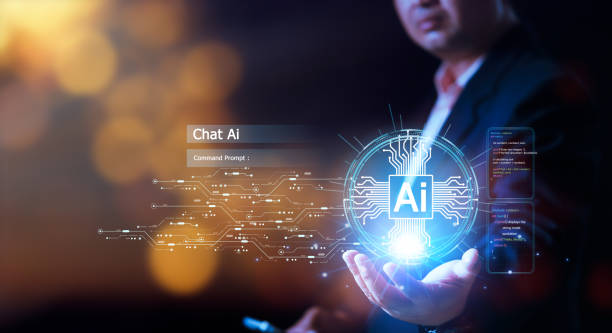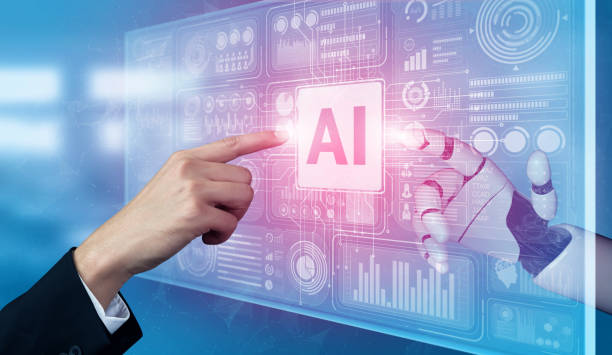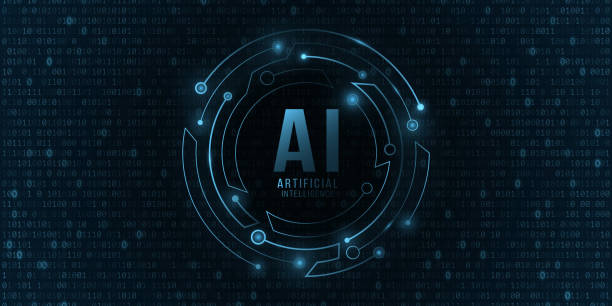What is Artificial Intelligence and Why is it Affecting Our Career Future?
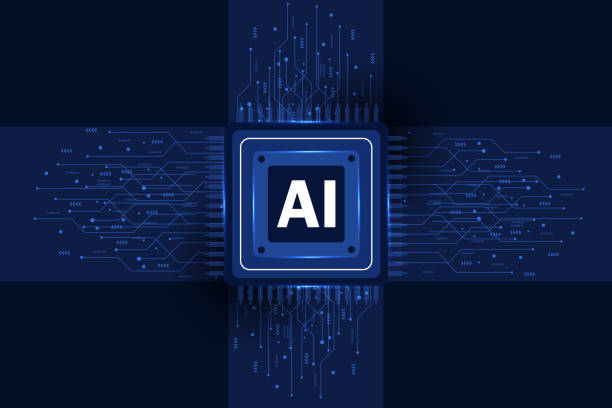
Artificial intelligence (AI) refers to the ability of machines to mimic human intelligence.
This includes learning, reasoning, problem-solving, natural language understanding, and machine vision.
Artificial intelligence [Wikipedia] is no longer a science fiction concept, but is rapidly becoming an integral part of daily life and various industries.
From virtual assistants like Siri and Alexa to self-driving cars and fraud detection systems, AI is everywhere.
The impact of AI on the #future career is broad and profound.
Automation of processes and tasks, increased productivity, and the creation of new opportunities are just some of these effects.
Although some jobs may disappear due to automation, AI also creates new opportunities that did not exist before.
Examining the future of AI jobs is crucial for anyone looking to advance their career or change career paths.
For example, data analysts with skills in AI are in high demand.
With the rise of AI, many organizations are looking to integrate this technology into their operations.
This has led to an increasing demand for AI professionals.
A deeper understanding of the future of AI jobs and learning related skills can help you advance in this competitive job market.
Research shows that 80% of customers trust companies with professional websites more. Does your current website gain this trust?
With Rasaweb’s corporate website design services, solve the problem of customer distrust and a weak online image forever!
✅ Create a professional image and increase customer trust
✅ Attract more sales leads and grow your business
⚡ Get free consultation
Jobs at Risk and New Opportunities in the Age of AI
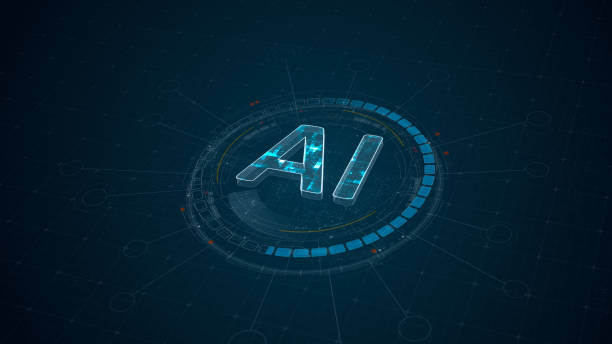
Automation, often powered by AI, can eliminate many repetitive and routine jobs.
Jobs such as telephone operators, office workers, and even some production positions are at greater risk.
It is important to note that this does not mean that these jobs will disappear completely, but rather that their roles and tasks will change.
In contrast, AI creates new opportunities in areas such as software development, data science, AI engineering, and AI project management.
Jobs that require creative thinking, complex problem solving, and human interaction are less affected by automation.
[SAS] Training and developing new skills, especially in AI-related fields, is essential to adapt to these changes.
For example, AI engineers who are able to design and implement AI systems will play a very important role in the future of AI jobs.
The future of AI jobs is taking shape, and people who are able to learn and adapt to these changes will have a better chance of success.
Data analysts with skills in AI and machine learning can help companies make data-driven decisions and play a key role in the development and implementation of AI systems.
These professionals play a fundamental role in determining the future of AI jobs.
Essential Skills for Success in AI-Related Jobs
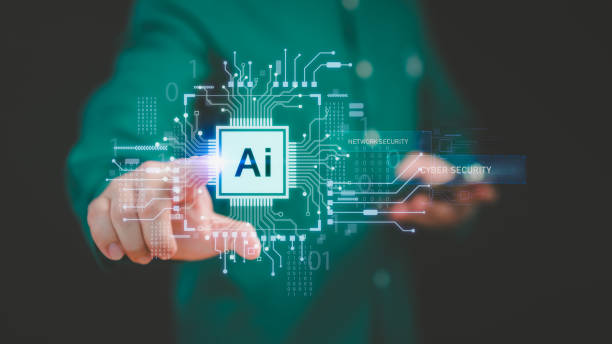
To succeed in AI-related jobs, you need a combination of technical and soft skills.
Technical skills include programming (especially Python and R), machine learning, statistics, linear algebra, and calculus.
A deep understanding of machine learning algorithms and the ability to implement them is of paramount importance.
Also, experience working with AI tools like TensorFlow and PyTorch can be very helpful.
In addition to technical skills, soft skills are also very important.
These skills include critical thinking, problem solving, communication, teamwork, and creativity.
The ability to solve complex problems using AI, present results in a clear and understandable way, and collaborate with other professionals are among the essential skills for success in this field.
The future of AI jobs requires people who have both strong technical knowledge and can communicate effectively with others.
For example, the ability to explain complex AI concepts in simple terms to non-technical stakeholders is a very valuable skill.
To develop these skills, you can take online courses, get relevant certifications, and participate in practical projects.
[Coursera] and [edX] offer a variety of courses in AI and machine learning that can help you learn and develop the skills you need.
Don’t forget that the future of AI jobs is in the hands of people who are constantly learning and progressing.
| Skill | Importance | Description |
|---|---|---|
| Programming (Python) | Very High | The main programming language for AI development |
| Machine Learning | Very High | Understanding algorithms and the ability to implement them |
| Statistics | High | Analyzing data and understanding statistical concepts |
| Critical Thinking | High | Ability to evaluate and solve complex problems |
| Communications | Medium | Ability to present results in a clear and understandable way |
The Role of Data in Shaping the Future of AI Jobs
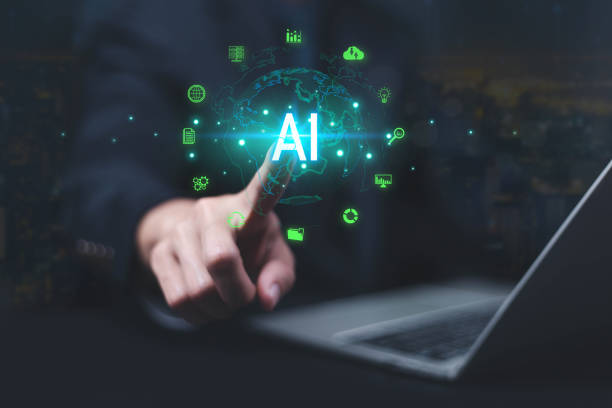
Data is the lifeblood of AI.
AI algorithms need a lot of data to learn and improve their performance.
The quality and quantity of data directly affect the accuracy and efficiency of AI systems.
Data science, which includes collecting, cleaning, analyzing, and interpreting data, plays a vital role in the development and implementation of AI.
Data science specialists use various tools and techniques to convert data into valuable information that can be used in business decision-making and improving system performance.
The future of AI jobs is heavily dependent on data.
Companies that are able to collect and analyze their data can use AI to improve processes, increase productivity, and provide better products and services.
The demand for data science specialists with skills in AI is constantly increasing.
By using machine learning algorithms and data analysis techniques, these specialists can identify patterns and trends in the data that help companies make strategic decisions.
The future of AI jobs needs data analysts who can work effectively with data and extract valuable information from it.
To gain skills in the field of data science, you can take training courses, get relevant certifications, and participate in practical projects.
Also, studying scientific articles and following the latest advances in this field can help you improve your knowledge and skills.
Keep in mind that [DataCamp] the future of AI jobs is in the hands of people who are constantly learning and progressing and can work effectively with data.
Did you know that 94% of users’ first impression of a business is related to its website design? With professional corporate website design by **Rasaweb**, turn this first impression into an opportunity for growth.
✅ Attract more customers and increase sales
✅ Create credibility and trust in the eyes of the audience⚡ Get a free website design consultation!
How AI is Transforming Various Industries

AI is currently used in many industries and has a profound impact on how they operate.
In the healthcare industry, AI is used to diagnose diseases, develop drugs, and improve patient care.
In the financial industry, AI is used to detect fraud, manage risk, and provide personalized financial services.
In the manufacturing industry, AI is used to automate processes, improve product quality, and reduce costs.
The future of AI jobs in each of these industries is different, but they all need professionals who can use AI to solve problems and improve performance.
For example, in the healthcare industry, there is a need for doctors who can use AI systems to diagnose diseases, and in the financial industry, there is a need for analysts who can use machine learning algorithms to detect fraud.
The future of AI jobs in various industries requires people who have both specialized knowledge in their field and AI-related skills.
With the advancement of technology, AI is expected to play a more important role in various industries and create new job opportunities.
People who are able to learn and adapt to these changes will have a better chance of success.
A closer look at [IBM Research] shows how AI is transforming various industries.
How Does Education and Skills Development Prepare You for the Future of AI Jobs?

Education and skills development play a key role in preparing you for the future of AI jobs.
To succeed in this field, you need to learn technical and soft skills related to AI.
Online and in-person training courses, specialized certifications, and practical projects can help you acquire these skills.
Also, studying scientific articles and following the latest advances in this field can help you improve your knowledge and skills.
The future of AI jobs requires people who are constantly learning and progressing.
Participating in training courses related to AI and machine learning can help you acquire the skills you need.
Also, participating in practical projects and working with real data can help you strengthen your practical skills.
The future of AI jobs needs people who can effectively use AI to solve problems and improve performance.
By developing your technical and soft skills, you can prepare yourself for these opportunities.
Examining learning opportunities at [Google AI Education] can be very helpful.
Don’t forget that the future of AI jobs is in the hands of people who are constantly learning and progressing and can work effectively with data and offer innovative solutions.
The Impact of AI on Salaries and Wages in Various Jobs
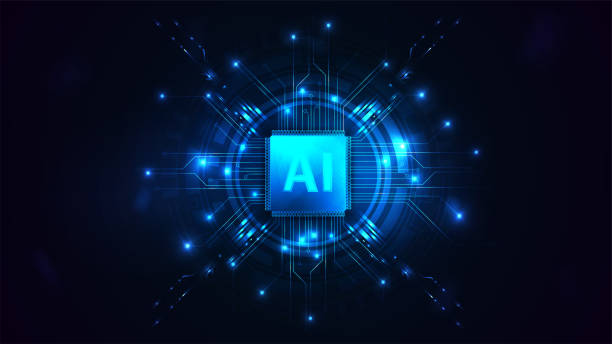
The impact of AI on salaries and wages varies across different jobs.
In jobs that are fully automated by AI, salaries and wages may decrease or these jobs may disappear completely.
In contrast, in jobs that require specialized skills in AI, salaries and wages increase significantly.
For example, AI engineers and data analysts with skills in AI can earn high salaries.
The future of AI jobs has a direct impact on the income of people in various industries.
[Salary.com] provides useful information about the salaries and wages of AI-related jobs.
Overall, the demand for AI professionals is expected to increase in the future, and as a result, their salaries and wages will also increase.
Companies looking to implement AI systems are willing to pay high salaries to professionals who can help them in this area.
The future of AI jobs requires people who have specialized skills in AI and can effectively use this technology to solve problems and improve performance.
However, it should be noted that the impact of AI on salaries and wages depends on various factors, including level of experience, skills, and geographical location.
People with more experience and skills can earn higher salaries.
Also, salaries and wages are higher in some geographical areas where the demand for AI professionals is higher.
| Job Title | Average Annual Salary (USD) | Description |
|---|---|---|
| AI Engineer | 140,000 | Developing and implementing AI systems |
| Data Scientist | 120,000 | Analyzing data and providing data-driven insights |
| Machine Learning Specialist | 130,000 | Developing machine learning algorithms |
| Business Analyst | 90,000 | Using AI to improve business processes |
Challenges and Obstacles Facing AI Professionals

AI professionals face numerous challenges and obstacles.
One of these challenges is the lack of sufficient and high-quality data to train AI algorithms.
AI algorithms need a lot of data to learn and improve their performance, but collecting and cleaning this data can be time-consuming and costly.
Another challenge is the shortage of skilled workers in the field of AI.
The demand for AI professionals is constantly increasing, but the number of people with the required skills is limited.
This shortage of manpower can be an obstacle to the implementation of AI systems in organizations.
[Nvidia] tries to compensate for this shortage by providing appropriate tools and training. The future of AI jobs requires more efforts to train and develop specialists in this field.
Also, ethical and legal issues related to AI also create challenges for professionals.
The use of AI in important decision-making, such as hiring and granting loans, can lead to discrimination and inequality.
AI professionals must be aware of these issues and ensure that AI systems are used fairly and responsibly.
The future of AI jobs requires attention to ethical and legal issues to prevent misuse of this technology.
Did you know that your company’s website is the first point of contact for 75% of potential customers?
Your website is the face of your brand. With **Rasaweb**’s corporate website design services, create an online presence that builds customer trust.
✅ Create a professional and lasting image of your brand
✅ Attract target customers and increase online credibility
⚡ Get a free consultation from **Rasaweb** experts!
Predicting the Future of AI Jobs in the Next 5 to 10 Years
![]()
Predicting the future of AI jobs in the next 5 to 10 years is difficult, but there are some key trends that can help us understand this future.
AI is expected to play a more important role in various industries and create new job opportunities.
Jobs that require specialized skills in AI, such as AI engineers, data analysts, and machine learning specialists, will be in high demand.
[McKinsey] predicts that AI can create millions of new jobs by 2030.
Also, the automation of processes and tasks by AI is expected to eliminate or change some jobs.
Jobs that are routine and repetitive are more at risk.
However, jobs that require creative thinking, complex problem solving, and human interaction are less affected by automation.
The future of AI jobs requires people who can adapt to these changes and learn new skills.
In general, the future of AI jobs looks bright, but it requires preparation and adaptation to change.
People who are able to learn and develop new skills will have a better chance of success.
Education and skills development, especially in AI-related fields, are essential to adapt to these changes.
Key Tips for Preparing Yourself for the Future of AI Jobs
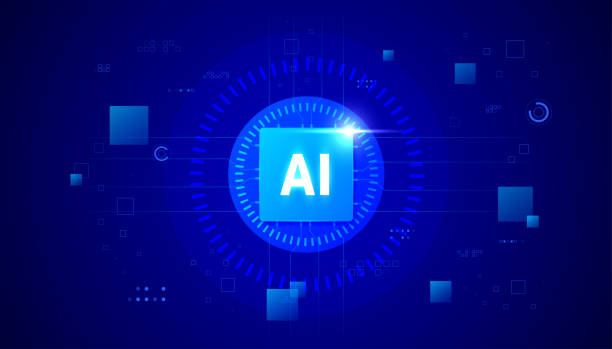
To prepare yourself for the future of AI jobs, you should pay attention to the following key points learning technical skills related to AI, such as programming (especially Python and R), machine learning, statistics, and linear algebra.
Participating in online and in-person training courses, obtaining specialized certifications, and participating in practical projects. Developing soft skills, such as critical thinking, problem solving, communication, teamwork, and creativity.
Following the latest advances in the field of AI by studying scientific articles, attending conferences, and following related blogs and podcasts.
Creating a network of communication with other AI professionals by participating in industry events, joining online communities, and communicating with people active in this field.
Look for internship opportunities and practical projects to increase your work experience in the field of AI.
The future of AI jobs requires practical experience.
Don’t be afraid to make mistakes and learn from them.
AI is a complex field and learning it requires effort and perseverance.
Remember that [AI for All] the future of AI jobs is open to everyone and with effort and perseverance you can succeed in this field.
AI creates new job opportunities and by preparing yourself you can benefit from these opportunities.
Understanding the future of AI jobs and investing in related skills is the key to success in this new era.
With continuous follow-up and continuous effort, you can become a successful specialist in the field of AI.
Frequently Asked Questions
| Question | Answer |
|---|---|
| What impact will artificial intelligence have on the future job market? | Artificial intelligence automates repetitive jobs, but at the same time it will create new and more complex jobs in areas such as development, maintenance and training of artificial intelligence systems. |
| Which jobs are most at risk of being replaced by artificial intelligence? | Jobs that involve repetitive, rules-based tasks with low demand for creativity or emotional intelligence, such as some manufacturing, data entry, and simple customer service jobs, are most at risk. |
| What skills are essential to succeed in a career with artificial intelligence in the future? | Skills such as critical thinking, complex problem solving, creativity, emotional intelligence, data literacy, the ability to work with artificial intelligence and lifelong learning are of great importance. |
| Will artificial intelligence cause widespread unemployment? | Some jobs will disappear, but history has shown that new technologies, instead of widespread unemployment, change the shape of the job market and create new jobs. The need for adaptation and retraining is important. |
| What new job opportunities are emerging with the advent of artificial intelligence? | Jobs such as machine learning engineer, data scientist, artificial intelligence ethicist, human-AI interaction designer, and digital transformation consultant are among the new opportunities. |
| What is the role of education in preparing for a career with artificial intelligence? | Education should focus on developing soft skills, computational thinking, digital literacy and the ability to learn continuously to prepare individuals for future changes. |
| How can I prepare myself for the labor market changes caused by artificial intelligence? | You can prepare yourself by learning new skills related to artificial intelligence and data, strengthening soft skills, developing critical thinking and creativity, and getting used to lifelong learning. |
| Will artificial intelligence ethics become an important field of work? | Yes, given the increasing concerns about biases, privacy and automated decision-making of artificial intelligence, the role of artificial intelligence ethics experts will be critical to ensure its responsible development. |
| What is the importance of human-artificial intelligence collaboration in the future career? | The collaboration between humans and artificial intelligence, instead of competition, shapes the future of the job market. Artificial intelligence can be a tool to increase productivity and focus human attention on more complex and creative tasks. |
| Which industries will be most affected by artificial intelligence? | Almost all industries will be affected, but areas such as health care, finance, transportation, manufacturing, education and customer service are pioneers in the acceptance and transformation by artificial intelligence. |
and other services of Rasa Web Advertising Agency in the field of advertising
Smart customer journey map: A new service to increase click-through rate by designing an attractive user interface.
Smart advertising campaign: A fast and efficient solution for user interaction with a focus on intelligent data analysis.
Smart marketing automation: A fast and efficient solution for user interaction with a focus on SEO-based content strategy.
Smart marketing automation: Designed for businesses looking to analyze customer behavior through user experience customization.
Smart customer journey map: Designed for businesses looking to grow online through SEO-based content strategy.
and more than hundreds of other services in the field of internet advertising, advertising consulting and organizational solutions
Internet advertising | Advertising strategy | Advertorial
Resources
Artificial intelligence in Iran and the world
,Job opportunities in artificial intelligence
, Job opportunities related to artificial intelligence
,The future of artificial intelligence jobs
? Do you want your business to shine in the digital world and reach the peak of visibility? Rasaweb Afarin, a leading digital marketing agency, with expertise in providing comprehensive and results-oriented solutions including SEO-optimized website design, helps you have a powerful and influential presence in the online space. With us, your digital goals are not just a dream; they are tangible realities.
📍 Tehran, Mirdamad Street, next to the Central Bank, South Kazerun Alley, Ramin Alley No. 6

